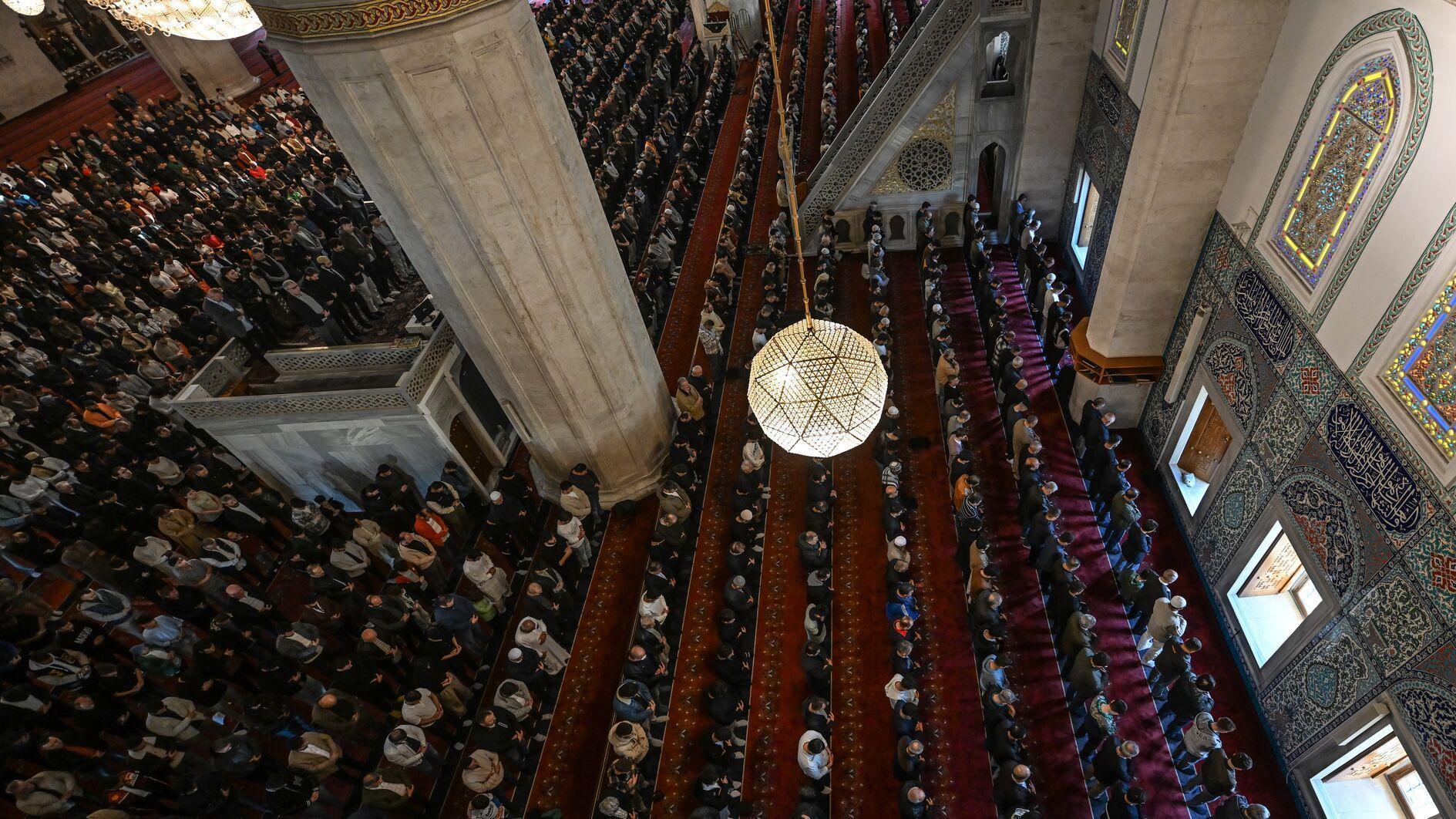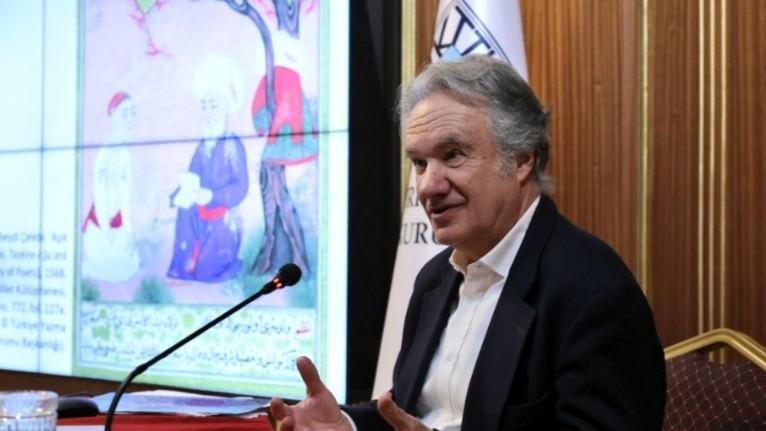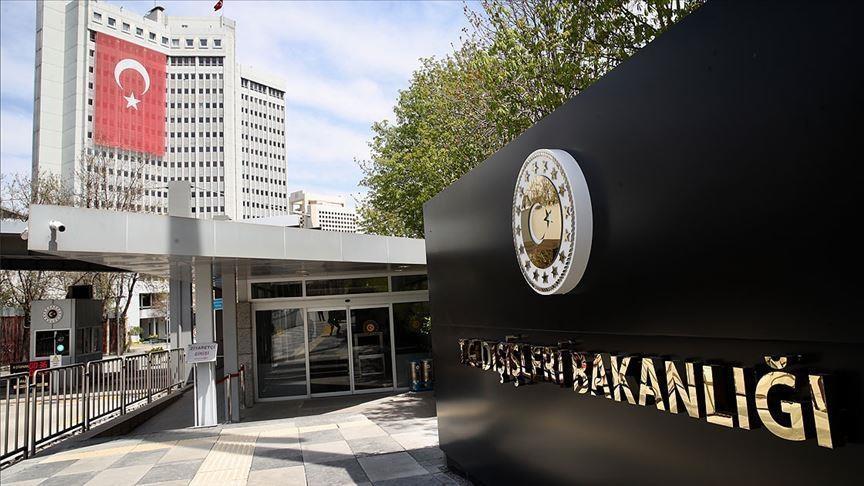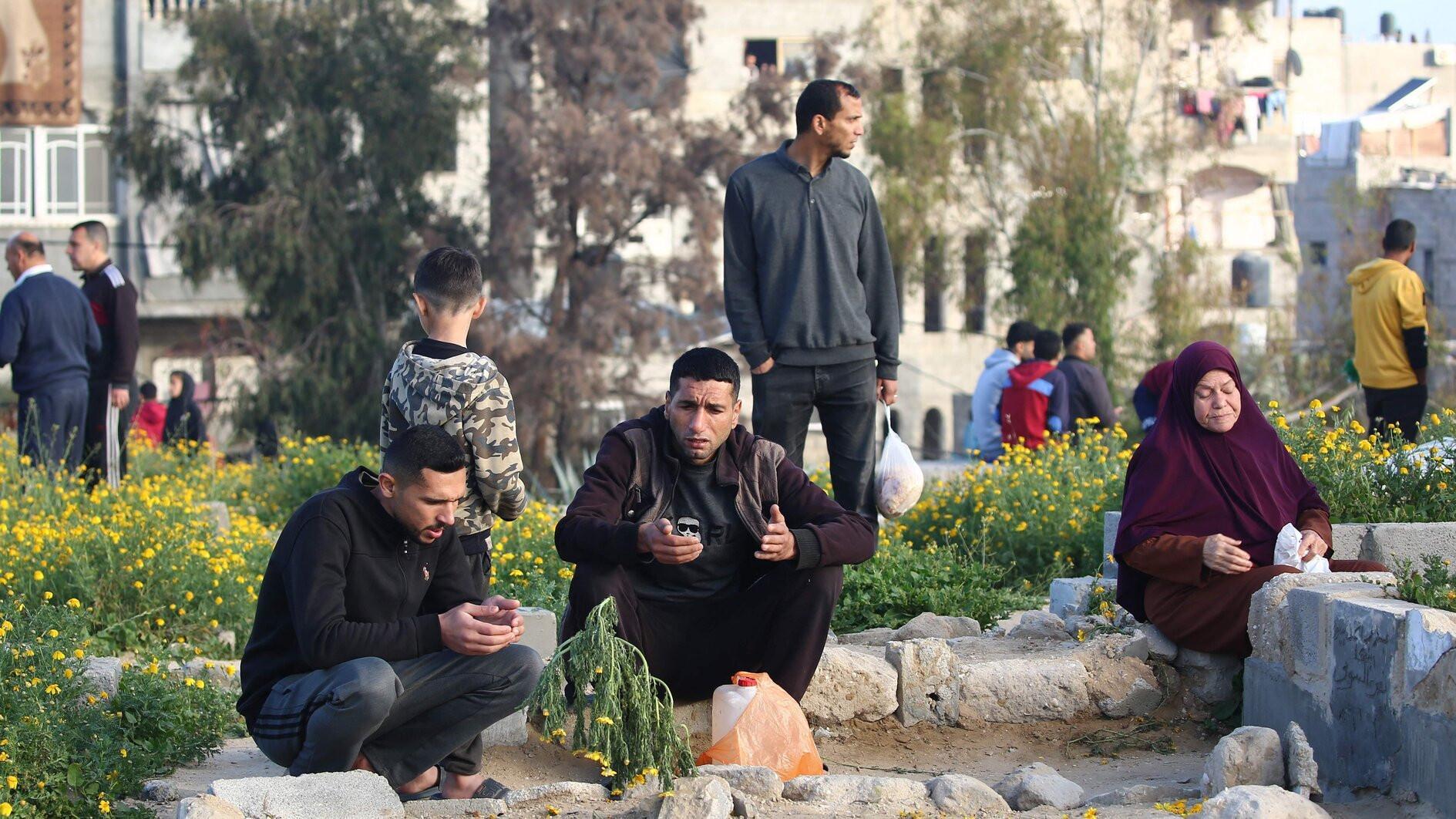Turkey returns to EU as foreign policy fails
ANKARA - Hürriyet Daily News
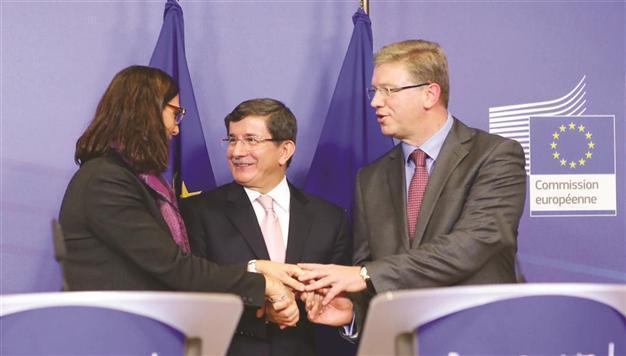
Davutoğl (C) attends a joint meeting with EU diplomats Malmström (L) and Stefan Füle. Turkey has recently increased efforts in relations with the EU. AA photo
Turkey’s visible pragmatic return to its European Union agenda following a long-term breeze in ties with Brussels is aiming both to distract attention from poor foreign policy performance in the Middle East and to utilize the soon-to-be-signed visa deal with Brussels as part of the ruling party’s pre-election campaign, according to foreign diplomats.“You will hear good news on Dec. 16. Turkey is launching a new process with the EU. You will hear about it on Dec. 16, I am not disclosing it now. You will be informed about it when we put our signatures on Dec. 16,” Prime Minister Recep Tayyip Erdoğan was quoted as saying by the Anadolu Agency during his Justice and Development Party’s (AKP) rally in Kırıkkale, a town in Thrace, on Dec. 6.
The process Erdoğan heralded to the audience was the beginning of visa liberalization talks with the EU on the condition that Turkey signs the long-awaited Readmission Agreement, something already publicized by Foreign Minister Ahmet Davutoğlu early last week. Both Turkish and European diplomats deem the deal very important and a historic turning point in the accession process. Turkish citizens will be able to travel visa-free to EU countries in less than three-and-half years should certain requirements be fulfilled, Davutoğlu had said.
Turkey’s return to the EU agenda will be enriched by some high-level exchange of visits in December and January. Among them most importantly is Prime Minister Recep Tayyip Erdoğan’s projected visit to Brussels in mid-January, nearly four years after his last journey where he will meet with top EU officials, President of the European Commission Herman von Rompruy, President of the European Commission Jose Manuel Barroso and President of the European Parliament Martin Schultz.
French President François Hollande’s visit to Turkey and Turkish President Abdullah Gül’s planned visit to Italy, both late January, are also seen very important in this regard. For his part, Davutoğlu will be in Athens on Dec. 13, in an important visit that comes just before Greece resumption of the EU’s term presidency on Jan. 1, 2014. Apart from Turkey’s accession process, envisioned unification talks in Cyprus will also be a very important item during the foreign minister’s visit.
“Turkey’s so-called return could only be possible after the European Commission issued a rather moderate Progress Report on Turkey despite the government’s harsh violations of human rights and democratic norms throughout the Gezi Protests,” a senior diplomat from an EU country told the Hürriyet Daily News last weekend. “We wanted to keep communication channels open with Turkey and that’s why we have seriously and sincerely applauded the Democratization Package and agreed to open the chapter on regional policies.”
Recalling that Turkey and the EU have in fact nearly accomplished technical works on the visa deal in July, EU diplomats questions whether this delay could be linked to upcoming elections. “Visa-free travel is very important for those in mostly rural areas whose family members work in Germany or other European countries. These people can hardly obtain visas comparing to professionals, businessmen and the like. It should not be a surprise if Erdoğan frequently and loudly uses this deal in his election campaign,” said a diplomat on the matter.
Around five million Turks work in European countries and they have strong bonds with their homeland. Many of their relatives have difficulties in getting visa from these countries due to concerns of illegal immigration.
Distracting attention from the Middle East?
But for many diplomats, equally important is the government’s realization of a need to distract attention from poor foreign policy performance in Middle East and particularly in Syria and Egypt.
“Turkey has lost allies and, more importantly, credibility in the region. While on the one hand it’s trying to repair its damaged ties in the region, it’s also exerting efforts to highlight relatively better faces of its foreign policy,” another EU diplomat stressed.
However, one problem with this motive is that the EU is an institution that is based on values like democracy, freedom of speech, right to assembly and human rights, the diplomat said, adding “It’s of course positive that we have more contacts nowadays and working on concrete projects. But Turkey is a candidate country and needs to continue to harmonize its democratic and bureaucratic acquis with that of the Union.”



